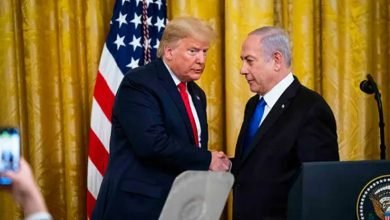Senate panel grills FBR chief over ‘punitive taxation’

Federal Board of Revenue Chairman Zubair Tiwana drew flak for an increase in taxes and punitive measures for non-filers, as the Senate Standing Committee on Finance deliberated on the Finance Bill 2024 on Thursday.
In addition to a proposed raise in taxes on imported electric vehicles, reservations about hikes in other sectors, such as cement, telecom and beverages, were also discussed, and senators observed that abrupt taxation measures were not conducive to investment.
A war of words between independent Senator Faisal Vawda and the FBR chairman was also witnessed. Senator Vawda, who is also in the same business, said he knew who dictated the tax increase and threatened to reveal their names.
He said electric vehicles were being encouraged around the world, while the Pakistani government had taken the opposite approach.
Vawda spars with Tiwana over tax hike on imported cars; telecom sector unhappy with SIM-blocking policy
Committee Chairman Saleem Mandviwalla and Senator Vawda noted that rapid policy changes discouraged investments. Senator Vawda said the decision would also complicate things for importers.
The FBR officials, however, clarified tax disparities between imported and domestically manufactured vehicles, emphasising the Ministry of Industries’ jurisdiction over such matters.
In response to a question, the FBR chairman said that the tax rate was raised on imported luxury vehicles, not locally-built cars, as those vehicles which cost more than Rs15 million were subject to a 25 per cent sales tax.
The CEO of Indus Motors told the committee that the auto sector had invested $100-150 million into the production of hybrid and electric vehicles under the auto policy 2021-26, but the government had unexpectedly revoked the incentives six months after they had made the investment.
The industry leader also pointed out that the pricing of a Rs22m vehicle contained Rs13m in taxes, whereas the actual cost was only Rs9m.
SIM-blocking order
The issue of blocking the SIM cards of non-filers was also discussed, with telecom sector representatives saying it would be impossible to disable the SIM cards of identified non-filers.
According to the telecom sector reps, two companies had already left the country, meaning that only three cellular operators were currently working in Pakistan.
The telecommunications sector also expressed grievances related to advance tax collections and sales taxes on mobile handsets.
Moreover, detailed deliberations were held regarding the proposed amendment to penalise retailers who sell cigarette packs without adequate tax stamps or labels, with provisions for closing their stores. Amendments were also proposed, including taxation on e-liquids and prohibitions on selling new cigarette brand variants at reduced rates.
The committee approved imposing an 18pc sales tax on nicotine pouches and debated taxes on electronic cigarette imports.
Senator Faisal Vawda made an unexpected confession during the meeting, admitting that he also smokes imported cigarettes. “The servant brings me and I smoke them,” he said, adding that it didn’t matter whether or not it was “stamped”.
Discussions also addressed taxation issues in the property sector and anticipated inflation rates for the upcoming financial year.
In response to questions concerning inflation forecasts for the coming fiscal year, the FBR chairman voiced uncertainty but appeared optimistic about revenue growth. However, Senator Mandviwalla expressed fears that higher taxes may lead to greater inflation.



